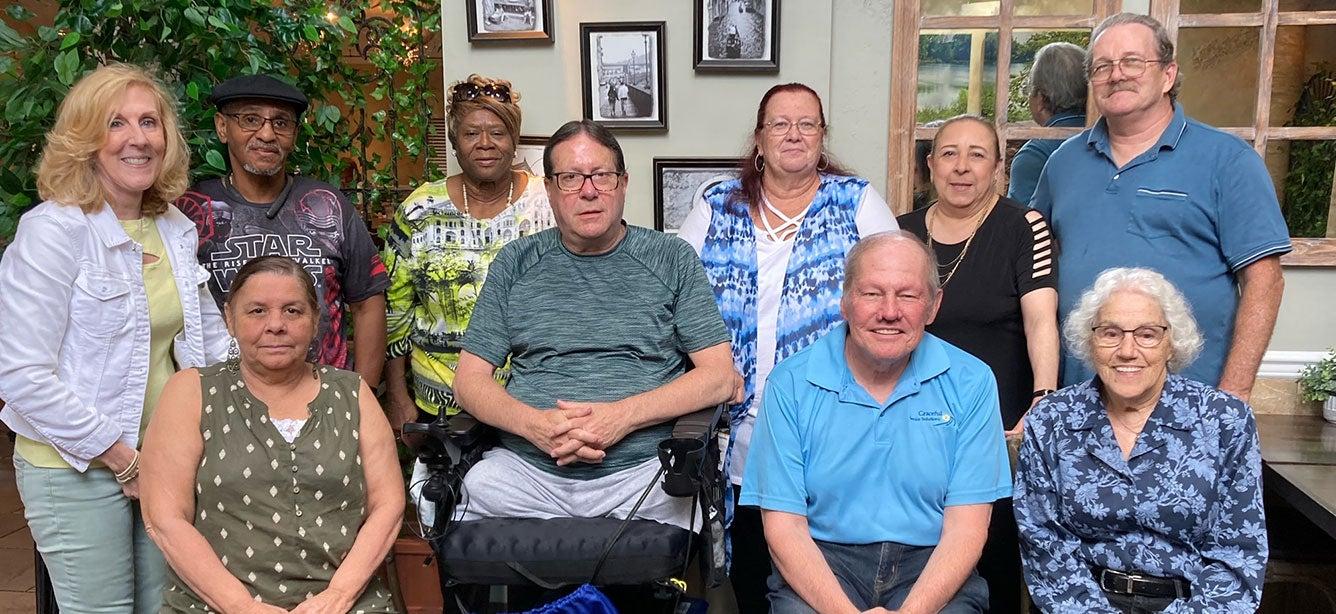How SCSEP Has Helped Older Adults Stay Employed During the Pandemic
4 min read

The COVID-19 pandemic has upended lives everywhere. No one has gotten by unscathed, but the varying degree to which people have been affected has shone an even more intense spotlight on the fragility of economic security in the United States. Americans experienced the highest rates of unemployment since the Great Depression, lines at food banks snaked for miles along roads daily, and people have feared losing their homes.
Employment for older adults during the pandemic
No age demographic has been more impacted than older adults. We learned quickly that older adults are more susceptible to coronavirus and have suffered the highest mortality rates. They have also been disproportionately affected in terms of employment loss. As more people begin to return to work, mature workers are rehired at a slower rate. As of September 2021, 1.3 million adults aged 55+ remained unemployed, and 48.9% of them were long-term unemployed, according to the Bureau of Labor Statistics. And as many as 1.9 million older adults have left the workforce entirely since January 2020, according to the Schwartz Center for Economic Policy Analysis.
Older adults’ health also suffers when they struggle with finances, and health care costs increase when they are forced out of the workforce prematurely. The overall economic (and ultimately socio) impact on older adults has been devastating.
As the operator of the Senior Community Service Employment Program (SCSEP), the only federal job training program designed specifically for older adults, NCOA has seen up close how the pandemic has impacted mature job seekers. Our immediate priority at the onset of the pandemic was to make operational changes that ensured the health and safety of those we serve. NCOA’s SCSEP participants transitioned from in-person training to remote training as soon as the national emergency was declared. For the approximate one-third of participants who have access to a computer and internet, the transition was seamless and easier, and the training content was dynamic and engaging. Those without in-home internet relied on printed coursework regularly distributed that was completed on their own.
How crucial broadband access is for older adults
Affordable internet access in all part of the United States is critical to job seekers, especially low-income older adults. Every facet of a job search is done online, ranging from job postings to job application submission to interview scheduling, and more frequent now, interviews. Without reliable and affordable internet, mature job seekers will not be competitive in today’s market.
Another lesson we learned during the pandemic was the extent to which participants wanted to return to their in-person training. After the national emergency and local shutdowns concluded, participants were given the option to return to in-person training if they wished. Given the rates of infection, they were also given the option to continue remote training. Fifty percent of NCOA SCSEP participants made the decision to return to their training sites when they were given the option. And at this time, close to 70% of participants have returned to in-person training.
Participants shared with our staff that they needed to feel productive, and they missed the contribution they make to the organizations where they train. NCOA has also been successful moving participants from training into jobs during the pandemic. SCSEP participants demonstrate that mature workers are highly motivated and dedicated to their work, contrary to the stereotype of someone biding their time until retirement.
How you can help support older workers
Federal support for employment and training programs is even more important during the economic downturn that has occurred during the pandemic. SCSEP focuses exclusively on helping older adults return to the workforce, prioritizing services to veterans, individuals with disabilities, and other most-in-need older adults who have low job prospects and significant barriers to employment.
SCSEP’s current funding level of $405 million is $60 million less than it was nearly three decades ago. Appropriations for fiscal year 2022 (FY22) is still pending in Congress—it’s our opportunity to make our voices heard. The House has proposed a $45 million increase for FY22, and the Senate is calling for a $5 million boost. You can help build momentum for this much-needed funding by telling Congress that older workers need their support at NCOA’s Action Center.
As the United States begins to recover from the pandemic, our leaders must remember the country’s older job seekers and workers. Without supportive resources and programs, the most vulnerable will again be left behind.



